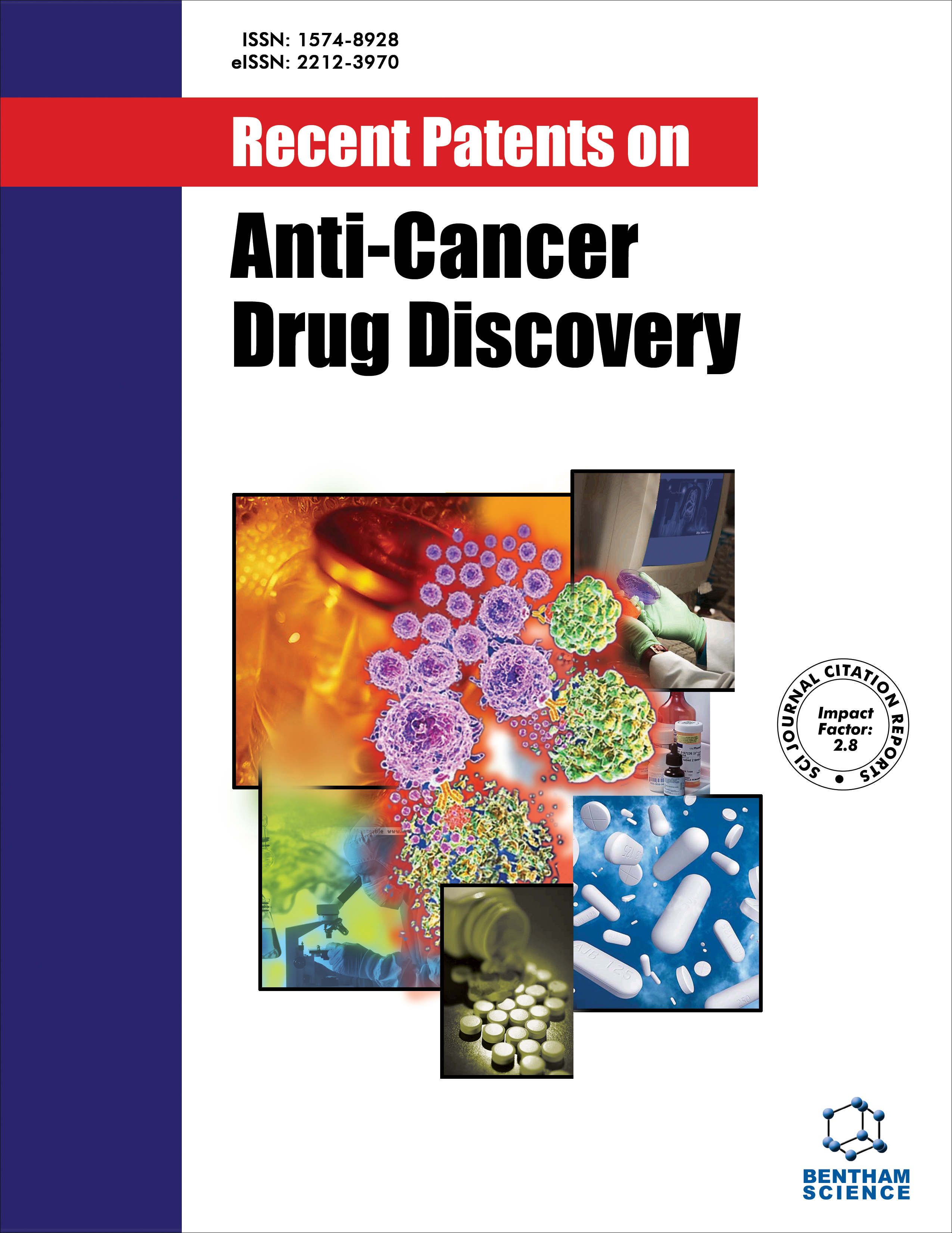-
s Aldo-Keto Reductase Family 1 Member B10 Inhibitors: Potential Drugs for Cancer Treatment
- Source: Recent Patents on Anti-Cancer Drug Discovery, Volume 11, Issue 2, Apr 2016, p. 184 - 196
-
- 01 Apr 2016
Abstract
Cytosolic NADPH-dependent reductase AKR1B10 is a member of the aldo-keto reductase (AKR) superfamily. This enzyme is normally expressed in the gastrointestinal tract. However, it is overexpressed in many solid tumors, such as hepatocarcinoma, lung cancer and breast cancer. AKR1B10 may play a role in the formation and development of carcinomas through multiple mechanisms including detoxification of cytotoxic carbonyls, modulation of retinoic acid level, and regulation of cellular fatty acid synthesis and lipid metabolism. Studies have suggested that AKR1B10 may be a useful biomarker for cancer diagnosis and a potential target for cancer treatment. Over the last decade, a number of AKR1B10 inhibitors including aldose reductase inhibitors (ARIs), endogenous substances, natural-based derivatives and synthetic compounds have been developed, which could be novel anticancer drugs. This review provides an overview on related articles and patents about AKR1B10 inhibitors, with a focus on their inhibition selectivity and mechanism of function.


